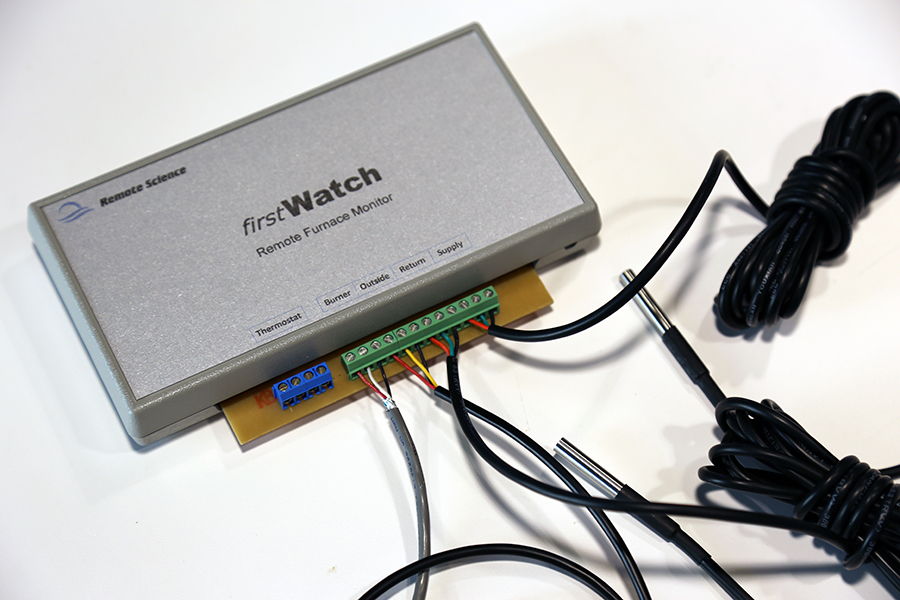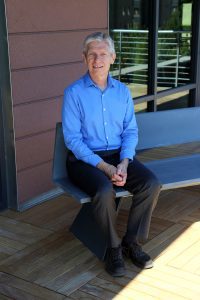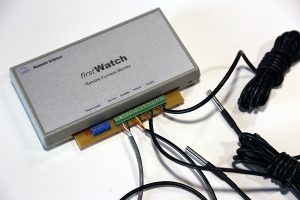
Rev Hardware Accelerator Team Turns Up The Heat
Rev’s summer Hardware Accelerator is in the middle of Sprint 3, the phase in which member teams work towards prototyping their product ideas. Teams are engaging in one-on-one work with mentors and technical instructors, as well as collecting insight from successful local hardware-based startups. As the teams work toward their final product concepts and prepare for Demo Day on August 11th, we’ll be sharing profiles of them and the story of their progress.
A few years ago, Joe Chipalowsky– a long-time Ithaca resident with a background in electrical engineering, manufacturing, and design – was working on the furnace in his house. It was old but functional, so he didn’t want to replace it. Instead, Joe thought he should be able to monitor the furnace and understand how it was using energy and when it might break down. “I started playing around with a few ideas,” Joe said. He wanted to design a monitoring system that would fit his needs. After a few years of trying out his ideas, Joe realized he had a potential product on his hands, one he now calls Remote Science.
Joe has lived in Ithaca since 1978, when he came to work for National Cash Register. During his time here, he has been involved with a few different startups and gotten to know the entrepreneurial community in the area – including Rev Entrepreneur-in-Residence Ken Rother. Joe ran his idea for a remote furnace monitoring system by Ken, who suggested that he work on his concept as a member of Rev’s summer Hardware Accelerator.
In the Hardware Accelerator, Joe has been able to make various prototypes for his product, work on proving his business model, and even delve into the various options for manufacturing in the region. Holding up two different models, Joe says he’s now working on selecting the right components and consolidating the product to make it as easy to manufacture as possible. Getting help from the technical instructors to choose the right components has been critical for Joe. “The processor I’m using now has built in Wi-Fi. That simplifies the system, and it really keeps the cost down.”
The Hardware Accelerator has been a lot of fun for Joe. He says it has finally forced him to focus. “I was thinking about it for years, and I’d drift off and get on another project. I need milestones and accountability.”
Joe also enjoys sharing this experience with the other teams. Hearing their pitches, along with the feedback they get from the mentors and instructors, has helped him refine his own approach to sharing his idea. The Hardware Accelerator teams even trade insights with each other on occasion; Joe got the idea to create a product insight page from another Hardware Accelerator team, which is helping him gather customer feedback on price points for his product. He also credits Hardware Accelerator mentor Brian Bauer with helping him to thoroughly explore his potential customer base and begin gathering feedback from people who may be interested in his system.
What’s next for Joe? After the Hardware Accelerator program is complete and he shares his final pitch on Demo Day, he hopes to seek out a few more team members and pursue his product as a business. He has no plans to leave Ithaca, he says – his children have grown up here, and he says it’s been a great place to live and work. “[My wife and I] have been in town a long time and involved with different startups, but the environment today – especially the last year or two – is night and day different. There were no resources, period. It’s entirely different now.”
To see Joe’s product in action, join us on August 11th for Demo Day. For more information about the Hardware Accelerator Program and its 2016 teams, click here.


